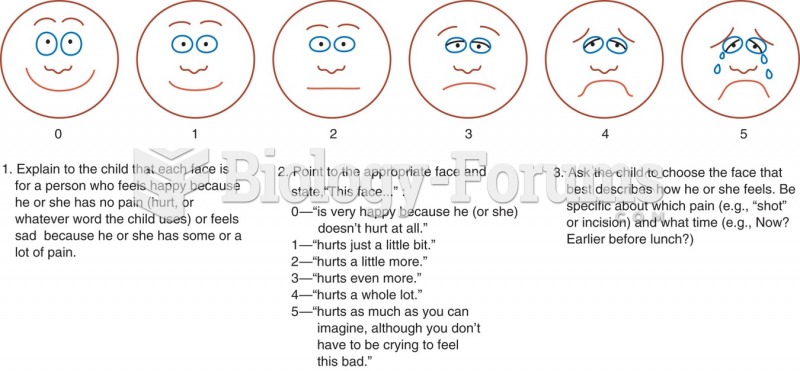|
|
|
Drying your hands with a paper towel will reduce the bacterial count on your hands by 45–60%.
On average, someone in the United States has a stroke about every 40 seconds. This is about 795,000 people per year.
For pediatric patients, intravenous fluids are the most commonly cited products involved in medication errors that are reported to the USP.
People with alcoholism are at a much greater risk of malnutrition than are other people and usually exhibit low levels of most vitamins (especially folic acid). This is because alcohol often takes the place of 50% of their daily intake of calories, with little nutritional value contained in it.
Approximately 70% of expectant mothers report experiencing some symptoms of morning sickness during the first trimester of pregnancy.







